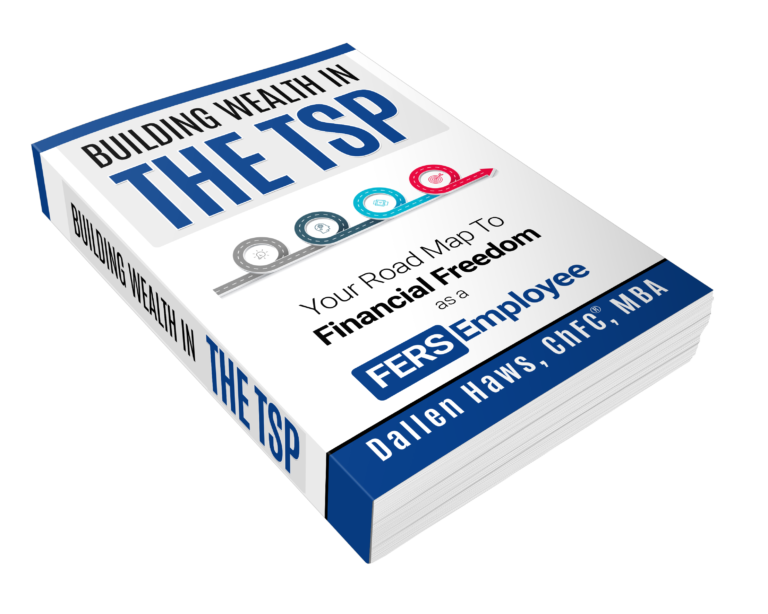Is 600k in your TSP really enough to retire?
Or do you need 2 million like that one article said?
Well there is only one way to find out!
Let’s dive in.
You Aren’t The Average
Before we dive into the numbers it is important to remember that you are not an average American.
You are a federal employee which means you get a pension in retirement!
This means that you won’t need as much in retirement savings as your private sector counterparts in order to have the same amount of income in retirement.
This doesn’t mean that you don’t have to be serious about retirement prep but it does mean that most articles online don’t take your federal benefits into account.
600k Enough?
Is 600k enough to retire on? For some, it is plenty. For others, not even close to enough.
But regardless of how much you have in your TSP, here is a way to figure out if it is enough for you.
Fixed Money
The first place to start is your fixed income. How much will your FERS pension be? What about the FERS Supplement or Social Security? Do you have a military retirement? Reserve retirement? Rental income? Etc.
Once you know all your fixed income sources the next step is to estimate what they are going to be net, after taxes and other deductions.
For example, your gross pension may be $3,000/month but after survivor benefits, health insurance premiums, and taxes it may only be $2,000/month.
Go one by one through your fixed income sources and think through what deductions come out of each one.
Investment Income
Once you have a good idea of what your net (after deductions) income will be from your fixed income sources, then we can look at your investment income.
Add up all the different investments you have like TSP, IRAs, and Brokerage accounts.
Let’s say all your investments balances add up to $600,000.
How much income can 600k produce for you in retirement?
A good way to estimate it is using the 4% rule. The 4% rule says that you can spend 4% of your investment balance year one and can increase that initial withdrawal amount by inflation overtime.
For example, with 600k you can spend $24,000 (4%) year one of retirement.
In year two and beyond you can spend $24,000 increased by whatever inflation was the previous year.
And $24,000/year is $2,000/month.
But of course if you withdraw it from a pre-tax account like the traditional TSP then you’ll have to pay taxes as well.
So $2,000/month gross may actually be $1,600/month net.
Example
So how can we change all these numbers into knowing if you have enough in your TSP?
This example will help.
Let’s say that you have the follow fixed income:
FERS Pension: $2,000 (Net, after all taxes/deductions)
Social Security: $1,500 (Net, after all taxes/deductions)
That would be a total net income of $3,500/month from fixed income.
And if you have 600k of investments then that could produce about $1,600/month (net) per our example above.
So all together you’d have a total net income of ($3,500 from fixed and $1,600 from investments) $5,100/month.
But is that enough???
One way to see if your net retirement income is enough for you is by comparing it to what you take home (net) right now from your paychecks.
For example, if you take home $2,300/paycheck (net, after all deductions) then all we have to do is change that to a monthly amount.
We change it to a monthly amount by multiplying by 26 pay periods (there’s 26 in a year) and dividing by 12 months.
$2,300 x 26 = $59,800 / 12 = $4,983/month
So having a net pay of $2,300/paycheck means you net about $4,983/month.
So if right now you are taking home $4,983/month from your paychecks and you’ll have $5,100/month in retirement then you are in a good spot as long as you are comfortable with your current spending habits.
Final Thoughts
Not everyone needs/wants to replace their preretirement income 100% but most people want to get close.
The most important thing is that you understand exactly what you are going to have in retirement and that you are comfortable with those numbers.


